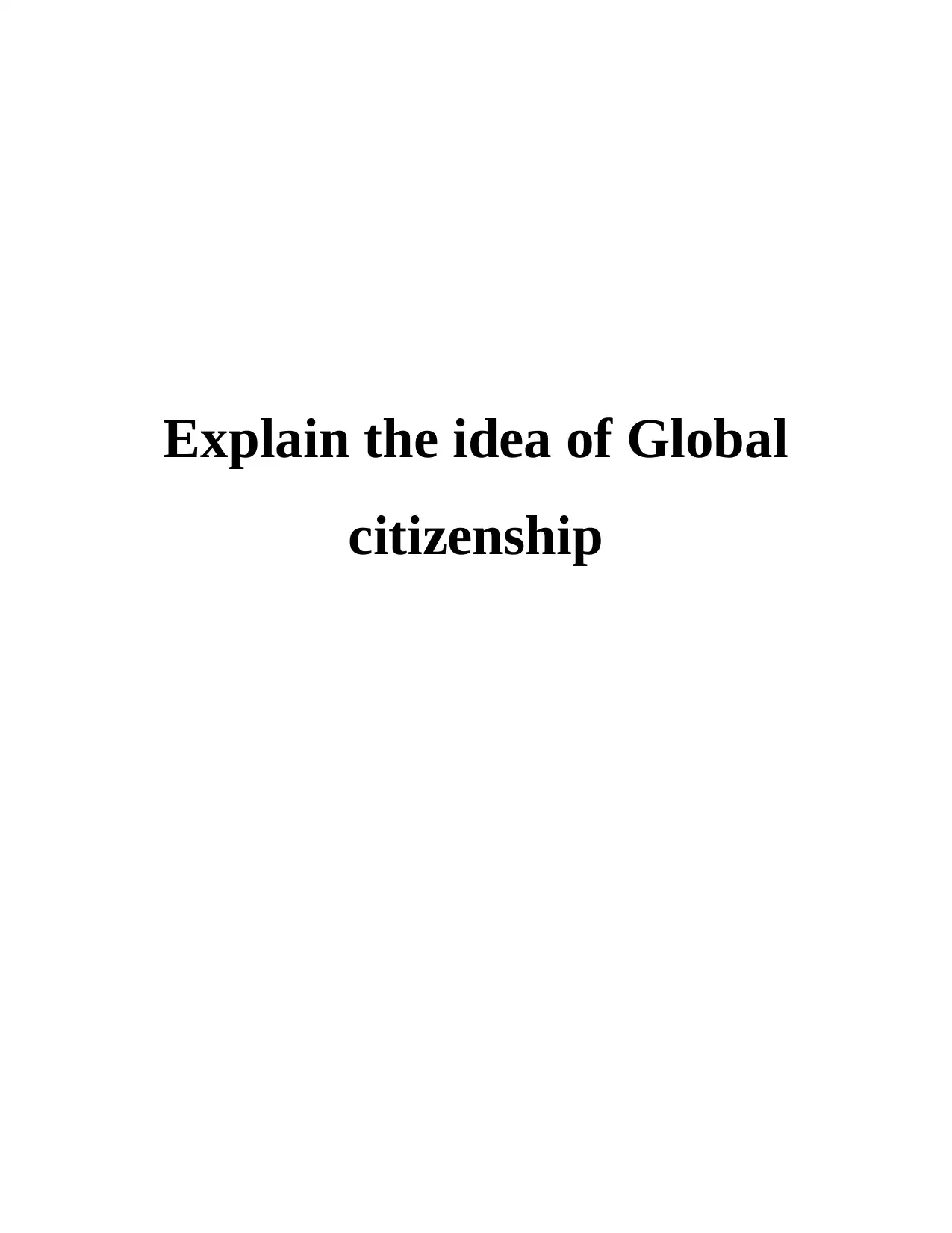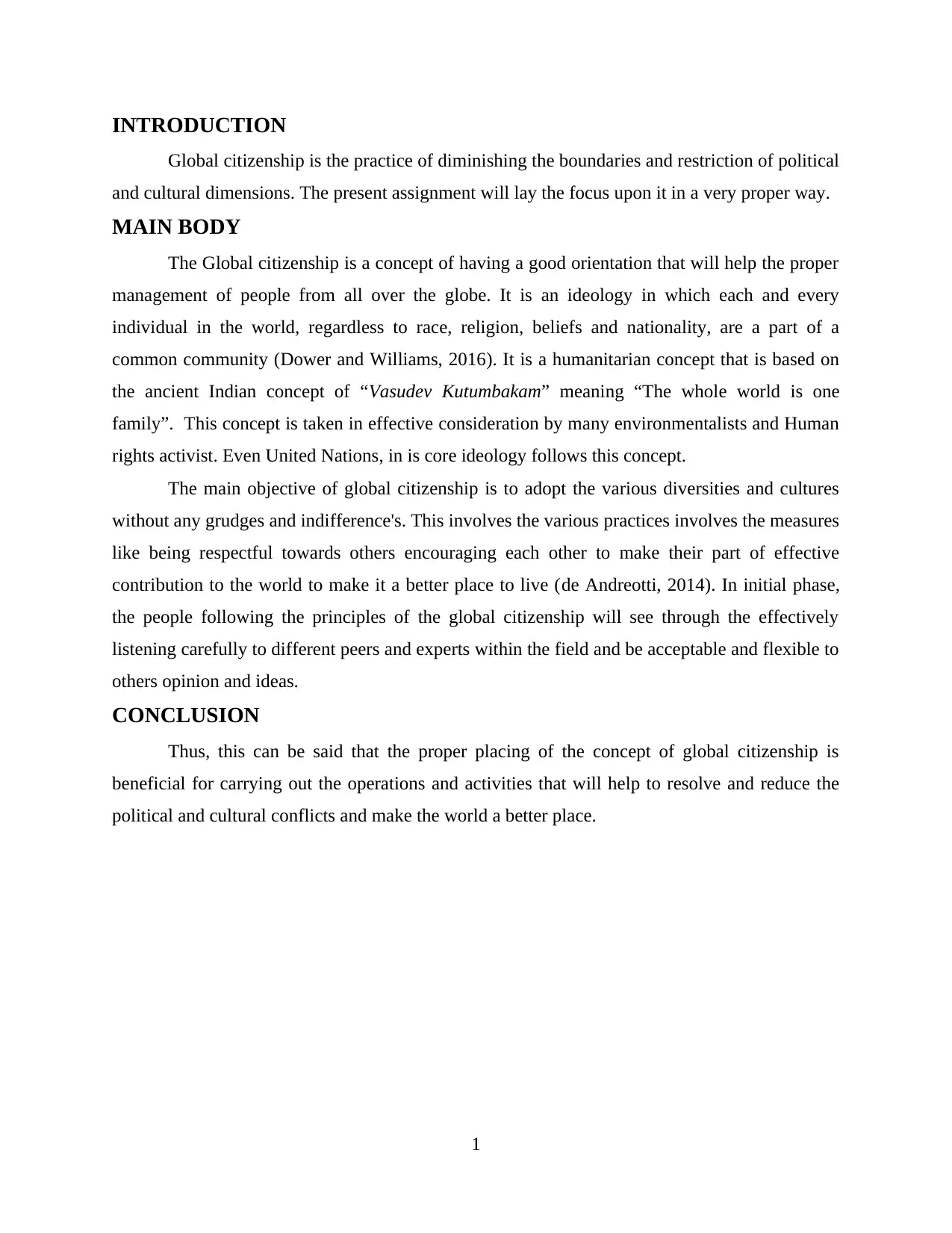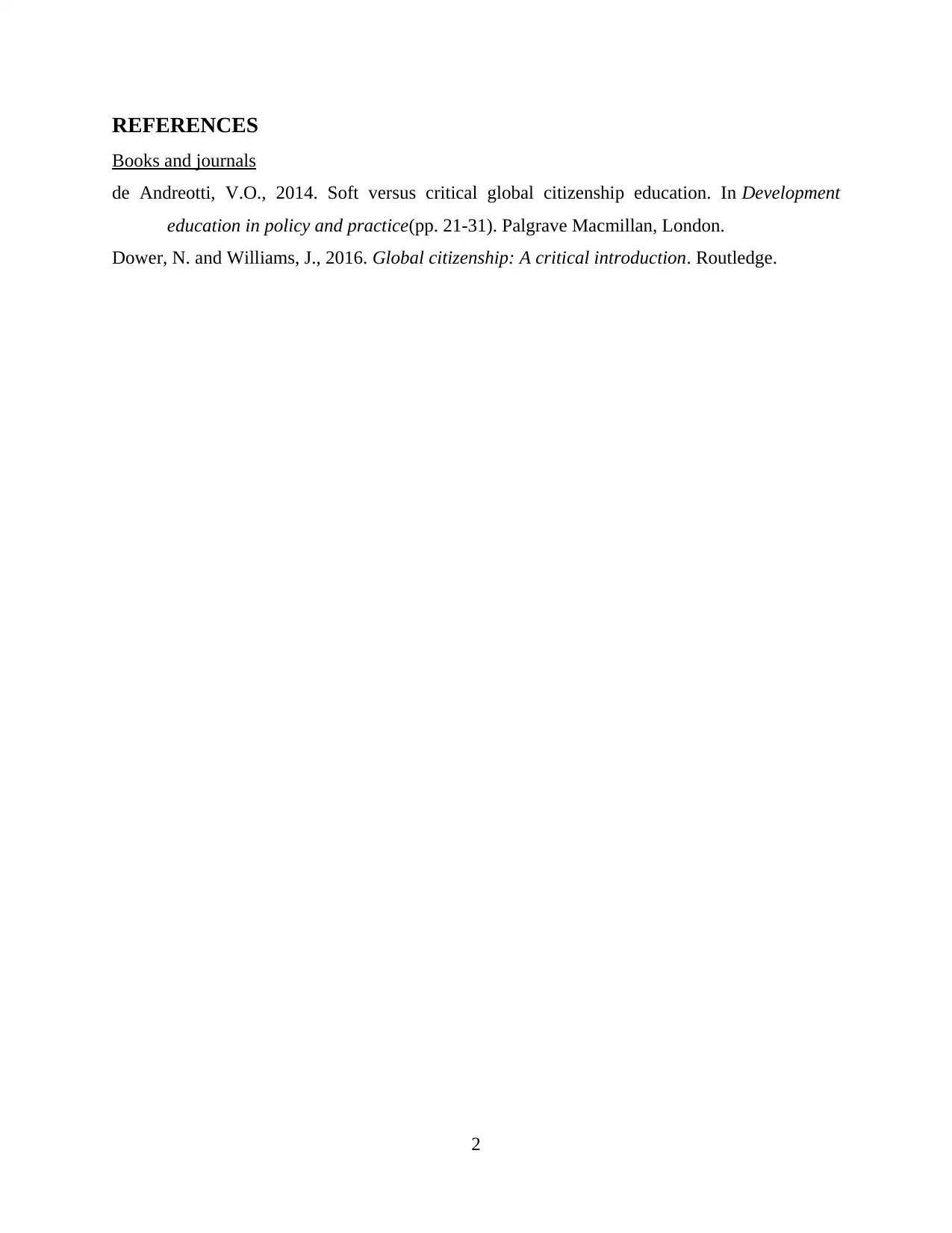Global Citizenship: Concept, Implementation, and Impact Analysis
VerifiedAdded on 2021/01/01
|4
|374
|181
Essay
AI Summary
This essay delves into the concept of global citizenship, emphasizing its role in diminishing political and cultural boundaries. It defines global citizenship as an ideology where all individuals, regardless of their background, are part of a global community, drawing parallels to the Indian concept of “Vasudev Kutumbakam.” The essay highlights the importance of respecting diverse cultures and actively contributing to a better world. It emphasizes the need for open-mindedness and the acceptance of different opinions. The conclusion underscores the benefits of global citizenship in resolving conflicts and fostering a more harmonious world. The essay references academic sources to support its arguments and provides a comprehensive overview of the subject.
1 out of 4











![[object Object]](/_next/static/media/star-bottom.7253800d.svg)